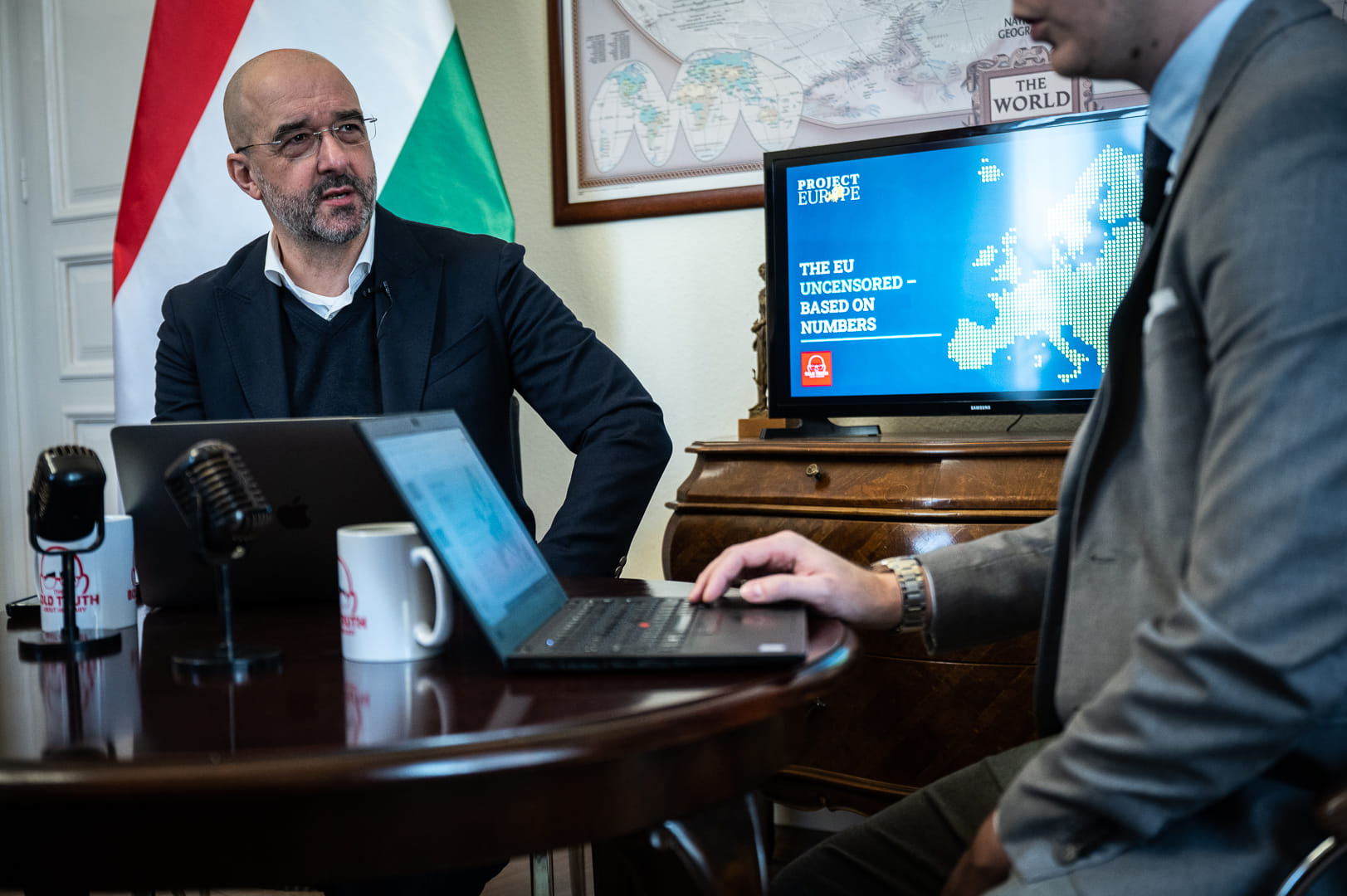
Hungary had no objections to the list of names connected to the tenth sanctions package, Zoltán Kovács stressed.Continue reading

The news that Hungary had vetoed, or blocked, a joint EU statement on the International Criminal Court’s (ICC) arrest warrant against Russian President Vladimir Putin started to spread like wildfire in the international media on Monday evening. Hungarian foreign affairs spokesman Máté Paczolay has since refuted the news to MTI on Monday evening, saying that it was a lie that Hungary had vetoed the EU statement on the ICC case.
On the contrary, Hungary has communicated the following position to High Representative of the European Union for Foreign Affairs and Security Policy, Josep Borrell: “Hungary takes note of the ICC decision and does not wish to comment on it in any way. However, if the High Representative or any member state wishes to issue a statement, Hungary will not object to it,” the spokesperson pointed out.
The International Criminal Court, based in The Hague, Netherlands, announced last Friday that it had issued warrants for the arrest of Russian President Vladimir Putin and the Moscow presidential commissioner for children’s rights, Maria Lvova-Belova, on suspicion of being personally responsible for the illegal deportation and transfer of Ukrainian children to Russia.
As numerous previous instances, fake news started to circulate in the international media about Hungary’s alleged role.
Bloomberg reported, citing Brussels sources, that Hungary vetoed the release of a joint EU statement on the arrest warrant issued by the International Criminal Court against Russian President Vladimir Putin.
Therefore, EU High Representative for Foreign Affairs and Security Policy, Josep Borrell, issued a statement only on his own behalf, and the statement in support of the ICC decision was signed by the justice ministers of EU Member States on behalf of their own countries, with the exception of Hungary. According to Bloomberg, the Hungarian government’s position is expected to be on the agenda at this week’s Brussels summit, where several EU leaders are expected to demand stronger language on Putin.
In the meantime, the news site has updated its article to include the rebuttal from the Hungarian foreign affairs spokesperson.
On the fake news that Hungary “vetoed” the EU position regarding ICC arrest warrant against Vladimir Putin: Hungary acknowledged the decision of ICC and does not wish to comment on it in any way. However, should the High Representative or any Member State wish to issue a… https://t.co/tctQkZLe08
— Zoltan Kovacs (@zoltanspox) March 21, 2023
By then, however, Bloomberg‘s article was then taken up without basic scrutiny by foreign newspapers, such as the Polish Do Rzeczy, which also reported that Hungary had blocked EU Member States from giving out the joint declaration, forcing Josep Borell to make his own statement. The same misleading news was reported by the Slovak site Aktuality.sk, which said, also quoting Bloomberg, that Hungary had blocked the EU joint statement on the arrest warrant for Putin. Since then, Aktuality.sk has reported about the Hungarian rebuttal denying the veto.
The Serbian news agency Tanjug did not perform any elementary fact checking regarding the story either, also quoting Bloomberg, reporting that Hungary had blocked the joint statement and that the EU Member States had been unable to issue a joint statement because of the Hungarian veto.
The news was also picked up by Ukrainian Korrespondent, Strana, Dzerkalo Tyzhnia, and Unian news agency. Strana also reported that EU justice ministers had issued a statement supporting the court’s decision, but Hungary refused to sign the document.
The Russian press was not left out of the loop either, with Gazeta.ru also reporting the news, citing Bloomberg reports that Hungary had blocked the EU statement. In a statement, Borrell was quoted as saying that the European Union sees the ICC’s decision as the beginning of the process of bringing Russian leaders to justice. Later, Gazeta also reported that the Hungarian Foreign Ministry denied that it had blocked the joint statement.
RIA Novosti, Sputnik, and Lenta news agencies, all in Russia, also picked up Bloomberg‘s article, with the latter reporting that Hungary banned the EU from publishing the statement, adding that the Hungarian position on the arrest warrant for Putin could be voiced at the next EU summit on March 23-24. Later, Lenta also published the Hungarian foreign affairs spokesperson’s rebuttal to the veto.
This incident further highlights the information campaign against Hungary most likely driven by the fact that the Hungarian government does not want to get involved in the Ukrainian-Russian war on any level. However, the the majority of the above mentioned media outlets are unlikely to publish a corrective to their original reporting, as it conveniently fits into their larger, equally misleading narrative of depicting Prime Minister Viktor Orbán as Vladimir Putin’s ally.
Featured photo via Pixabay